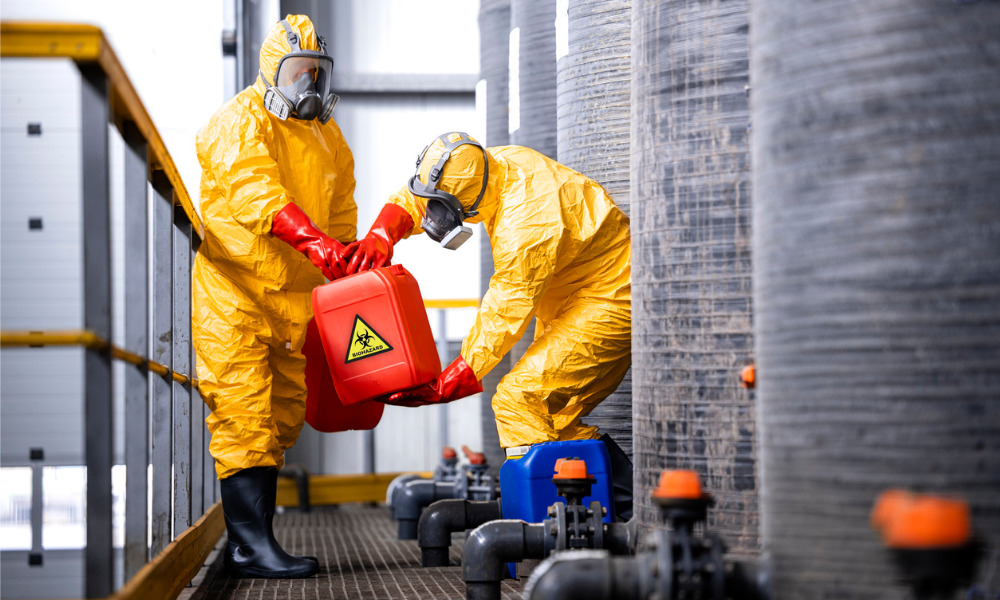After a house flood in Burlington or house flood in Ottawa, homeowners often wonder, “Is mold inevitable?” The simple answer is no, but it becomes highly likely if water damage is not handled immediately and professionally. Mold spores exist naturally in the air and only need moisture, warmth, and organic material to grow. A flooded home provides the perfect environment.
When floodwaters invade your home, carpets, drywall, insulation, wood, and even furniture absorb moisture quickly. Within 24 to 48 hours, mold can begin to grow. If you’re dealing with a house flood Burlington or Ottawa, you need to act immediately to reduce mold risks. Quick action not only prevents structural damage but also stops mold growth in its tracks.
Understanding Mold Growth Conditions
Mold doesn’t need much to thrive—moisture, organic material, moderate temperature, and a few days of inactivity. In most house floods in Ottawa or Burlington, these conditions are met within hours.
Materials such as drywall, carpeting, flooring, and furniture upholstery act as food sources for mold. Combine that with humid post-flood conditions, and mold will multiply rapidly. Delaying water extraction and drying gives mold the upper hand.
Even if water recedes naturally, dampness remains trapped in hidden areas such as basement corners, behind walls, or under floorboards. Without advanced drying and dehumidification, these wet spots become breeding grounds for mold.
This is where professionals like Ideal Response step in—ensuring your property is dried and treated thoroughly to avoid mold.
Signs That Mold Is Developing After a Flood
Even if you believe you’ve cleaned up after a flood, mold may still form in unseen areas. Some telltale signs include:
- Persistent musty odor
- Discoloration on walls, ceilings, or baseboards
- Warped wood and peeling paint
- Increased allergy symptoms or respiratory issues
If you experience any of these after a house flood Ottawa or Burlington, you may already have a mold issue. Mold spores can affect both your home’s structure and your family’s health, so timely inspection is crucial.
Why DIY Cleanups Often Fail to Prevent Mold
Many homeowners attempt to clean up a flooded home using fans, mops, and household dehumidifiers. While this may help dry visible water, it fails to address moisture trapped deep in materials and hidden crevices.
DIY cleanup often lacks the tools and expertise needed to:
- Detect hidden moisture with infrared sensors
- Fully dry wall cavities and subflooring
- Use antimicrobial treatments to prevent mold
That’s why partnering with professionals like Ideal Response ensures the job is done right the first time. Their industrial-grade equipment and certified technicians specialize in flood recovery and mold prevention.
How Fast Should You Act to Prevent Mold?
The first 24 to 48 hours are critical after a house flood in Burlington or Ottawa. Mold can begin colonizing your home within this timeframe. Here’s a timeline of what you should do:
Within Hours:
- Turn off electricity if water has entered electrical systems.
- Contact a professional flood damage service like Ideal Response.
- Begin removing water using wet vacs or pumps.
Day 1–2:
- Start industrial drying and dehumidifying.
- Remove soaked carpets and insulation.
- Treat surfaces with anti-fungal agents.
Day 3–7:
- Inspect for hidden moisture behind walls and under floors.
- Continue drying and monitor humidity levels.
- Evaluate any potential mold spots for further treatment.
Any delay in this process allows mold to take hold, making cleanup more complicated and expensive.
Professional Mold Prevention: Why It’s Essential
Even a minor house flood in Ottawa can lead to major mold problems if not handled professionally. That’s why mold prevention isn’t just about drying—it’s about thorough assessment, strategic treatment, and ongoing monitoring.
Ideal Response uses advanced drying equipment, moisture meters, and antimicrobial applications to ensure mold doesn’t have a chance to develop. Their trained technicians follow industry protocols that eliminate both visible and invisible threats.
Not only does this approach preserve your property value, but it also protects your family from mold-related health problems like asthma, skin irritation, and sinus congestion.
Does Insurance Cover Mold From a House Flood?
Most home insurance policies do not cover mold damage unless you act swiftly and the mold is a direct result of a covered water loss. That’s why documenting your actions and response time is vital.
If you’ve experienced a house flood in Burlington, notify your insurance provider immediately and document:
- Photos of the damage
- Receipts for cleanup and restoration services
- Proof of immediate professional action (such as from Ideal Response)
Failing to act fast can result in your claim being denied, leaving you to foot the bill for mold remediation.
Long-Term Consequences of Untreated Mold
If mold is not properly removed, it continues to grow and spread, leading to:
- Severe structural damage to walls, floors, and beams
- Deterioration of air quality and persistent health symptoms
- Uninhabitable living conditions
- Increased costs for long-term restoration and reconstruction
By tackling mold within the critical window after a house flood in Ottawa, you save time, money, and stress.
How to Choose the Right Mold Prevention Experts
Not all restoration companies are created equal. When choosing a flood recovery service after a house flood in Burlington, look for:
- IICRC-certified technicians
- 24/7 emergency response
- Clear documentation and insurance coordination
- Advanced equipment for moisture detection and drying
Ideal Response checks all these boxes. They are known across Ontario for their prompt, reliable, and expert service—helping homeowners avoid the long-term dangers of mold after a flood.
Final Thoughts: Is Mold Inevitable?
Mold is not inevitable after a flood—if you act quickly and work with experts. It becomes a problem only when the water is left standing too long or when DIY methods fail to address hidden moisture.
If your property suffers from a house flood in Ottawa or Burlington, the best move is to contact a trusted name like Ideal Response immediately. Their experience in mold prevention and flood restoration can be the difference between a fully restored home and one plagued by long-term mold problems.








